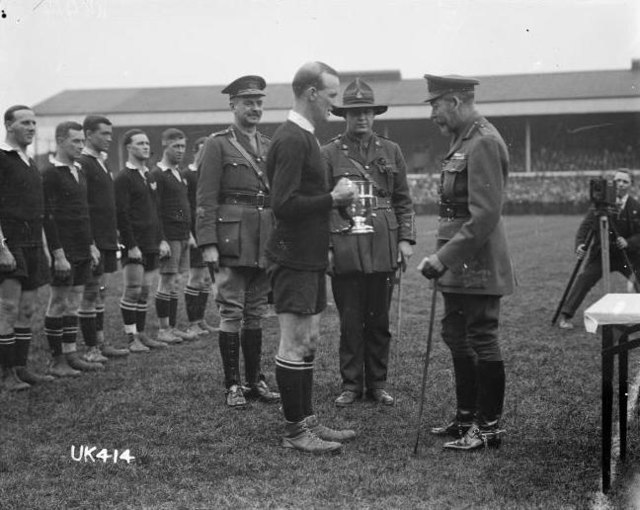1888–89 New Zealand Native football team
The 1888–89 New Zealand Native football team was a New Zealand rugby union team that toured Britain, Ireland, Australia and New Zealand in 1888 and 1889. It mostly comprised players of Māori ancestry, but also included some Pākehā. A wholly private endeavour, the tour was not under the auspices of any official rugby authority; it was organised by New Zealand international player Joseph Warbrick, promoted by public servant Thomas Eyton, and managed by James Scott, a publican. The Natives were the first New Zealand team to perform a haka, and also the first to wear all black. They played 107 rugby matches during the tour, as well as a small number of Victorian Rules football and association football matches in Australia. Having made a significant impact on the development of New Zealand rugby, the Natives were inducted into the World Rugby Hall of Fame in 2008.
The New Zealand Natives before their match against Queensland in July 1889, in front of the United Tribes flag and the Union Jack
Joe Warbrick selected and then captained the Natives.
A team photo of the 1888–89 New Zealand Native football team while in England prior to a match against Middlesex
George Rowland Hill, the secretary of the Rugby Football Union
Rugby union football, commonly known simply as rugby union or more often just rugby, is a close-contact team sport that originated at Rugby School in England in the first half of the 19th century. Rugby is simply based on running with the ball in hand. In its most common form, a game is played between two teams of 15 players each, using an oval-shaped ball on a rectangular field called a pitch. The field has H-shaped goalposts at both ends.
South African Victor Matfield takes a line-out against New Zealand in 2006.
Rugby School in Rugby, Warwickshire, with a rugby football pitch in the foreground
James Ryan, captain of the New Zealand Army team, receiving the Kings Cup from George V
Sébastien Chabal (far left) in number eight position before entering the scrum








